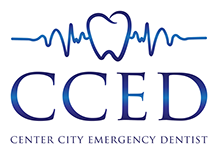For many people, getting dental work is anxiety inducing, even if it’s just a regular trip to the dentist and not an emergency dentist. Because of negative past experiences or undue fears about what could go wrong, something like the sound of the dentist’s drill can set off feelings of discomfort and can create stress in the body. Many general and specialist dentist offices know their patients have anxiety in coming in and they take steps to help alleviate it through different strategies. For instance, sedation dentistry offices have popped up all over the place in an effort to help patients relax during procedures.
Often times, starting from the first phone call in helping to put your mind at rest, dental offices will help to educate you about what to expect and any pre-office preparation needed on your part. There are some steps you can take, starting at home, to help reduce your anxiety during your visit. One fairly easy step is to avoid caffeine. This will help your overall feeling of anxiousness. Another step is to eat high-protein foods before the appointment. Eating low sugar and high levels of protein will help to have a calming effect. It will also help to keep your blood sugar levels from getting low during the appointment, so you don’t become shaky feeling, adding to your discomfort. During your appointment, focus on breathing regularly and slowly. It is normal to hold your breath when you feel stressed or afraid, but an increase in your oxygen levels will help you feel more relaxed.
The best thing to do is to talk with your emergency dentist about your fears. The dentist can help educate you and help explain what will happen during the appointment. He or she can also know about your fears and approach the task in a more sensitive manner to help you feel cared for and safe.
